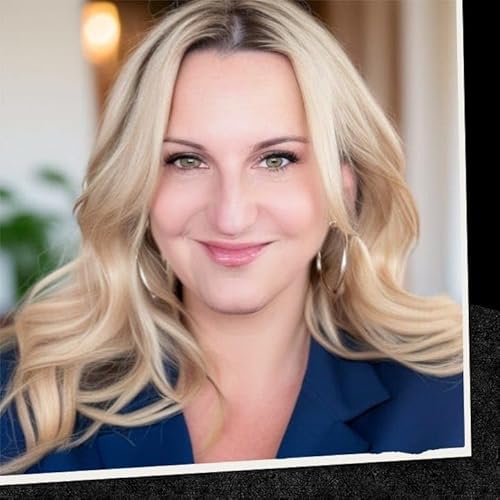Book coach Joelle Hann—aka “The Brooklyn Book Doctor”—joins me to discuss the journey from book idea to finished product. Joelle delves into common obstacles for first-time authors, the transformative nature of writing, and the importance of mindset and resilience.
She also shares insights from her Book Proposal Academy and highlights trends happening in the publishing industry, especially post-pandemic. Whether you’re stuck at the beginning or seeking to refine your manuscript, this episode provides great guidance on navigating the daunting path to publishing. (This episode was originally released in July 2023.)
---------
"When people get serious about writing a book and fulfilling this desire to have a book, that voice is really loud. Voice that says, no one wants to hear from you. This is not a good idea. It's already been done before. It's not interesting."
---------
Key Takeaways
* What many writers need is “mindset guidance” and “expectations guidance,” says Joelle Hann.
* Developmental editing vs. book coaching: It's not just about refining the manuscript but nurturing the author's confidence and creative process.
* Traditional publishing has shifted, especially since the pandemic. Joelle highlights the pressures on big publishers and how it affects new authors trying to break in.
* One thing that surprises Joelle—and flummoxes new authors—is that while they bring enthusiasm to the process, they also face a big crash when confronted with their inner demons.
* “When you get serious about the thing you want to do, your inner resistance comes and says, hold on a second,” she says. One way around this? Introducing mindfulness and somatic techniques to help authors move past blocks.
* As a book coach, Joelle emphasizes the transformative process of writing, which often reveals bigger personal revelations beyond just the book. For those who face down their inner critics, they often discover unexpected resilience—a key to successful authorship.
---------
"Editors can love a book and think it's phenomenal, still not be able to sign it because they don't have what they call a ‘vision’ for the book, which usually means they can't quite see directly how it'll turn into big sales…Now, that said, people are still getting book deals. My clients are still getting book deals. But it can take more work.”
---------
About Joelle Hann & the Book Proposal Academy
Joelle Hann is a book coach & writer helping authors write their books and proposals, discover their ideas, and harness their creative process. Her clients have been published with Big 5 and independent presses such as TarcherPerigee (Penguin Group), North Star Way (Simon & Schuster), Harper Wave, Workman, Wiley, Sounds True, Shambhala Publications, and more.
Joelle’s Book Proposal Academy is a live, hands-on coaching program to help writers craft a top-tier book proposal, structure their book, write chapters, and prepare to become an author. Pitch a book that agents and editors are excited to buy!
Past clients include authors Jillian Turecki, Sebene Selassie, Amanda Griffith-Atkins, Eileen Rosete, Catherine Simone Gray and more.
This six-month program is the fast track to publishing and making book dreams come true. Learn more and apply here. The next cohort starts October 15th.
Credits
This episode was edited and produced by Chérie Newman at Magpie Audio Productions. Theme music is "The Stone Mansion" by BlueDot Productions.
This is a public episode. If you would like to discuss this with other subscribers or get access to bonus episodes, visit bookiwanttowrite.substack.com
 43 m
43 m 39 m
39 m Aug 28 202431 m
Aug 28 202431 m 35 m
35 m Jul 31 202438 m
Jul 31 202438 m 32 m
32 m Jul 3 202430 m
Jul 3 202430 m 34 m
34 m
